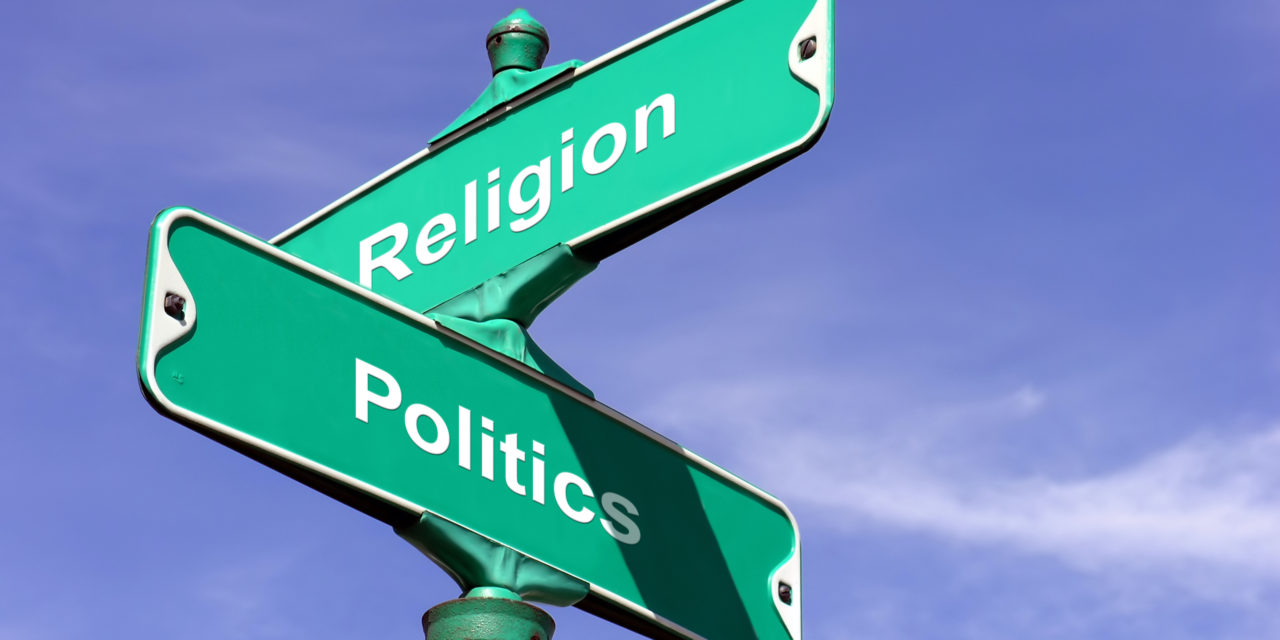Certainly, the effectual spread of the Gospel is of paramount importance to all Christians. But to read numerous articles in elite publications today, one would think the precious Gospel of Jesus Christ is being dangerously crippled by the nastiness of current partisan politics. Just this week, The New York Times warned in a lengthy article “a ‘Seismic Shift’ Fractures Evangelicals” because of politics and The Atlantic, which seems to run such doomsaying articles about every 6 months, explains “How Politics Poisoned the Evangelical Church.”
If these folks are to be believed, Christians involved in politics is the Gospel’s greatest hinderance today. But what these journalists fail to understand is their neighborly “the sky is falling” warning to faithful Christians is nothing new at all. Nor is it helpful or particularly insightful. Discerning readers know this to be true. The reasons are many.
First, the elite press has been predictably apoplectic for decades now about any and every movement of biblical Christians’ involvement in politics. Thus, their warnings today ring hollow. Just as we are now supposed to believe that this new thing called “Ultra Maga” is far worse than “Original Maga” which we were told for years was literally Nazi-like, the implication is that we should reject the “poisoned” faith-based politics of today and pine wistfully for the good ol’ days of the Moral Majority and Christian Coalition.
Continuing to cry wolf has consequences.
Yes, we grow tired of the elite media’s faux concern for something it despises: the effectiveness of the Gospel. It also fails to understand basic citizenship.
Second, all Christians are citizens of the nation in which they were born or legally reside. Being proud of the nation God has placed one in and getting involved in the politics of that nation is not so-called “Christian nationalism.” It is called vibrant citizenship and democracy. Nations are stronger when everyone gets involved and brings their full conviction and participation to the public square. Even religious conviction. This is not the death of democracy, but the exact opposite.
And yes, politics can be messy. But that doesn’t mean Christians should avoid it. It means they should become serious students of how to do it well. If Jesus is Lord, and He is, He is Lord of every sphere of life. And Christians are called to participate in every sphere of cultural life. Including politics, regardless of what others think. We are not hermits.
Third, to think Christians have no business getting deep into the politics of their respective nations fails to understand basic Christian history. Let’s start with the Christianity’s first evangelist: John the Baptist. He way mixed politics and Gospel ministry. He did so to the point of death.
Of course, John was the fore-runner of Jesus, the Word made flesh. Jesus said there was no one born of woman greater than John the Baptist. His example is certainly worth following. John was imprisoned and lost his head, literally, because he spoke truth directly to political power on the nature of marriage and sexual integrity, telling Herod Antipas his marriage was unlawful. His outspokenness cost him his vital ministry and his life.
Even the great Jewish historian Flavius Josephus details the facts of this early Christian political involvement explaining, “For Herod had killed this good man … John, who was called the Baptist, … who had commanded the Jews to exercise virtue, righteousness towards one another and piety towards God.”
Clearly Jesus’ forerunner did not see voicing Christian conviction on family matters directly to the highest political leaders as a challenge to or distraction from his mission, even though it ended up costing him his very life. Neither should we.
The Savior himself was tangled up in the politics of the day. He was, after all, put to death by the State under enormous political pressure. But He was not concerned about the entanglement, knowing His Gospel was more powerful than the messiness of those politics.
The early church fathers were extremely outspoken politically on the issue of abortion. O.M. Bakke, in When Children Became People: The Birth of Childhood in Early Christianity, explains early Christian apologists like Athenagoras and Tertullian “had addressed their texts to Roman governors and emperors” likely influencing the criminalization of abortion there. This saw this, not as a competition to the Gospel, but the very work of the Good News itself. They could walk and chew gum.
Throughout the history of the Church, Christians have unapologetically engaged politics at great cost to themselves, their ministries and reputations. They did so to defend God’s definition of marriage and family, to protect children, to battle slavery, to elevate women, to protect the vulnerable and secure justice for those with different skin colors. This is all a profound part of the history of Christianity.
Christians must remember this: The Gospel is a lion, a mighty wind, a supernatural, unstoppable force. It is not an old lady needing help to cross the street. The holiness of God is never at odds with the grace of God. Those who believe it is do not understand either. People turned away from Jesus regularly and he let them do so. Others were drawn by his love and boldness
If Jesus is truly Lord, Christians are citizens who are called to engage all aspects of civic life. Costly and divisive engagement in politics has always been a part of our story. It is certainly not a threat, but a demonstration of Christianity’s vibrancy and power.
Photo from Twitter.






